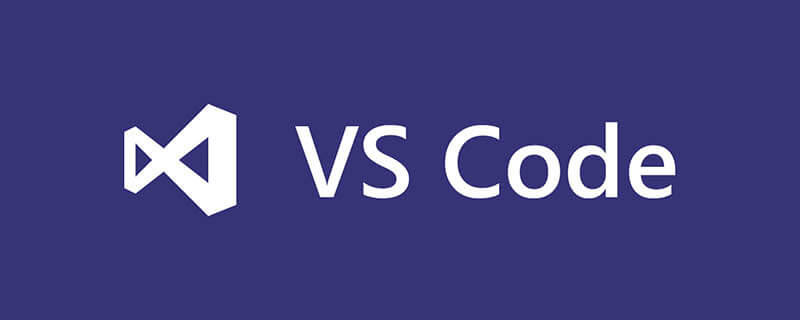The if statement performs conditional judgment. When the condition is true, code block 1 is executed, and when it is false, it is skipped. The else statement provides alternative code, and code block 2 is executed when the condition is false. 1. Conditional expression: code block 1 is executed when evaluated to true, and code block 2 is executed when false. 2. Code block: Contains the statement to be executed, enclosed in curly brackets bracketed. 3. Nested if else: Process multiple conditions, find the first if statement that satisfies the condition and execute it, otherwise execute the else statement.

Usage of if else in C language
if statement in C language Used to perform conditional judgments. When the condition is true, it will execute the given block of code; when the condition is false, it will skip the block of code. The else statement can be used with the if statement to provide an alternative block of code if a condition is false.
Syntax
if (condition) {
// 代码块 1
} else {
// 代码块 2
}Usage
-
Conditional expression:
condition Thepart is the expression to be evaluated. It can be any Boolean expression, such as a comparison, logical operator, or function call. If the expression evaluates to true (non-zero), code block 1 is executed. If the expression evaluates to false (zero), code block 2 is executed. - Code Block: A code block is a block of code that contains statements to be executed. Code blocks can be enclosed in curly braces ({}).
For example:
int age = 18;
if (age >= 18) {
printf("可以投票\n");
} else {
printf("不能投票\n");
}In this example:
-
age >= 18is a conditional expression. - If
ageis greater than or equal to 18, code block 1 is executed and "can vote" is printed. - If
ageis less than 18, execute code block 2 and print "Cannot vote".
Nested if else statements
if else Statements can be nested to handle multiple conditions.
For example:
int score = 90;
if (score >= 90) {
printf("A\n");
} else if (score >= 80) {
printf("B\n");
} else if (score >= 70) {
printf("C\n");
} else {
printf("D\n");
}In this example:
- The first level
ifstatement checks whether the score is greater than or equal to 90. If it is, it prints "A". - If the condition of the first level
ifstatement is false, the second levelif elsestatement will be executed. It checks if the score is greater than or equal to 80. If so, it prints "B". - This process continues in this manner until the first
ifstatement that satisfies the condition is found. If the condition of noifstatement is true, theelsestatement is executed.
The above is the detailed content of How to use if else in c language. For more information, please follow other related articles on the PHP Chinese website!
 (超详细)VScode中配置C语言环境的方法Dec 05, 2022 pm 07:05 PM
(超详细)VScode中配置C语言环境的方法Dec 05, 2022 pm 07:05 PMVScode中怎么配置C语言环境?下面本篇文章给大家介绍一下VScode配置C语言环境的方法(超详细),希望对大家有所帮助!
 c语言中node是什么意思Jul 06, 2022 pm 03:51 PM
c语言中node是什么意思Jul 06, 2022 pm 03:51 PM在C语言中,node是用于定义链表结点的名称,通常在数据结构中用作结点的类型名,语法为“struct Node{...};”;结构和类在定义出名称以后,直接用该名称就可以定义对象,C语言中还存在“Node * a”和“Node* &a”。
 c语言怎么将数字转换成字符串Jan 04, 2023 pm 03:20 PM
c语言怎么将数字转换成字符串Jan 04, 2023 pm 03:20 PMc语言将数字转换成字符串的方法:1、ascii码操作,在原数字的基础上加“0x30”,语法“数字+0x30”,会存储数字对应的字符ascii码;2、使用itoa(),可以把整型数转换成字符串,语法“itoa(number1,string,数字);”;3、使用sprintf(),可以能够根据指定的需求,格式化内容,存储至指针指向的字符串。
 c语言开根号运算符是什么Mar 06, 2023 pm 02:39 PM
c语言开根号运算符是什么Mar 06, 2023 pm 02:39 PM在c语言中,没有开根号运算符,开根号使用的是内置函数“sqrt()”,使用语法“sqrt(数值x)”;例如“sqrt(4)”,就是对4进行平方根运算,结果为2。sqrt()是c语言内置的开根号运算函数,其运算结果是函数变量的算术平方根;该函数既不能运算负数值,也不能输出虚数结果。
 c语言数组如何初始化Jan 04, 2023 pm 03:36 PM
c语言数组如何初始化Jan 04, 2023 pm 03:36 PMC语言数组初始化的三种方式:1、在定义时直接赋值,语法“数据类型 arrayName[index] = {值};”;2、利用for循环初始化,语法“for (int i=0;i<3;i++) {arr[i] = i;}”;3、使用memset()函数初始化,语法“memset(arr, 0, sizeof(int) * 3)”。
 c语言合法标识符的要求是什么Aug 27, 2020 pm 01:47 PM
c语言合法标识符的要求是什么Aug 27, 2020 pm 01:47 PMc语言合法标识符的要求是:1、标识符只能由字母(A~Z, a~z)、数字(0~9)和下划线(_)组成;2、第一个字符必须是字母或下划线,不能是数字;3、标识符中的大小写字母是有区别的,代表不同含义;4、标识符不能是关键字。
 c语言中源文件编译后生成什么文件Nov 23, 2022 pm 07:44 PM
c语言中源文件编译后生成什么文件Nov 23, 2022 pm 07:44 PMc语言编译后生成“.OBJ”的二进制文件(目标文件)。在C语言中,源程序(.c文件)经过编译程序编译之后,会生成一个后缀为“.OBJ”的二进制文件(称为目标文件);最后还要由称为“连接程序”(Link)的软件,把此“.OBJ”文件与c语言提供的各种库函数连接在一起,生成一个后缀“.EXE”的可执行文件。
 c语言怎么计算n的阶乘Jan 04, 2023 pm 03:18 PM
c语言怎么计算n的阶乘Jan 04, 2023 pm 03:18 PMc语言计算n的阶乘的方法:1、通过for循环计算阶乘,代码如“for (i = 1; i <= n; i++){fact *= i;}”;2、通过while循环计算阶乘,代码如“while (i <= n){fact *= i;i++;}”;3、通过递归方式计算阶乘,代码如“ int Fact(int n){int res = n;if (n > 1)res...”。


Hot AI Tools

Undresser.AI Undress
AI-powered app for creating realistic nude photos

AI Clothes Remover
Online AI tool for removing clothes from photos.

Undress AI Tool
Undress images for free

Clothoff.io
AI clothes remover

AI Hentai Generator
Generate AI Hentai for free.

Hot Article

Hot Tools

Atom editor mac version download
The most popular open source editor

mPDF
mPDF is a PHP library that can generate PDF files from UTF-8 encoded HTML. The original author, Ian Back, wrote mPDF to output PDF files "on the fly" from his website and handle different languages. It is slower than original scripts like HTML2FPDF and produces larger files when using Unicode fonts, but supports CSS styles etc. and has a lot of enhancements. Supports almost all languages, including RTL (Arabic and Hebrew) and CJK (Chinese, Japanese and Korean). Supports nested block-level elements (such as P, DIV),

SublimeText3 Linux new version
SublimeText3 Linux latest version

VSCode Windows 64-bit Download
A free and powerful IDE editor launched by Microsoft

ZendStudio 13.5.1 Mac
Powerful PHP integrated development environment






